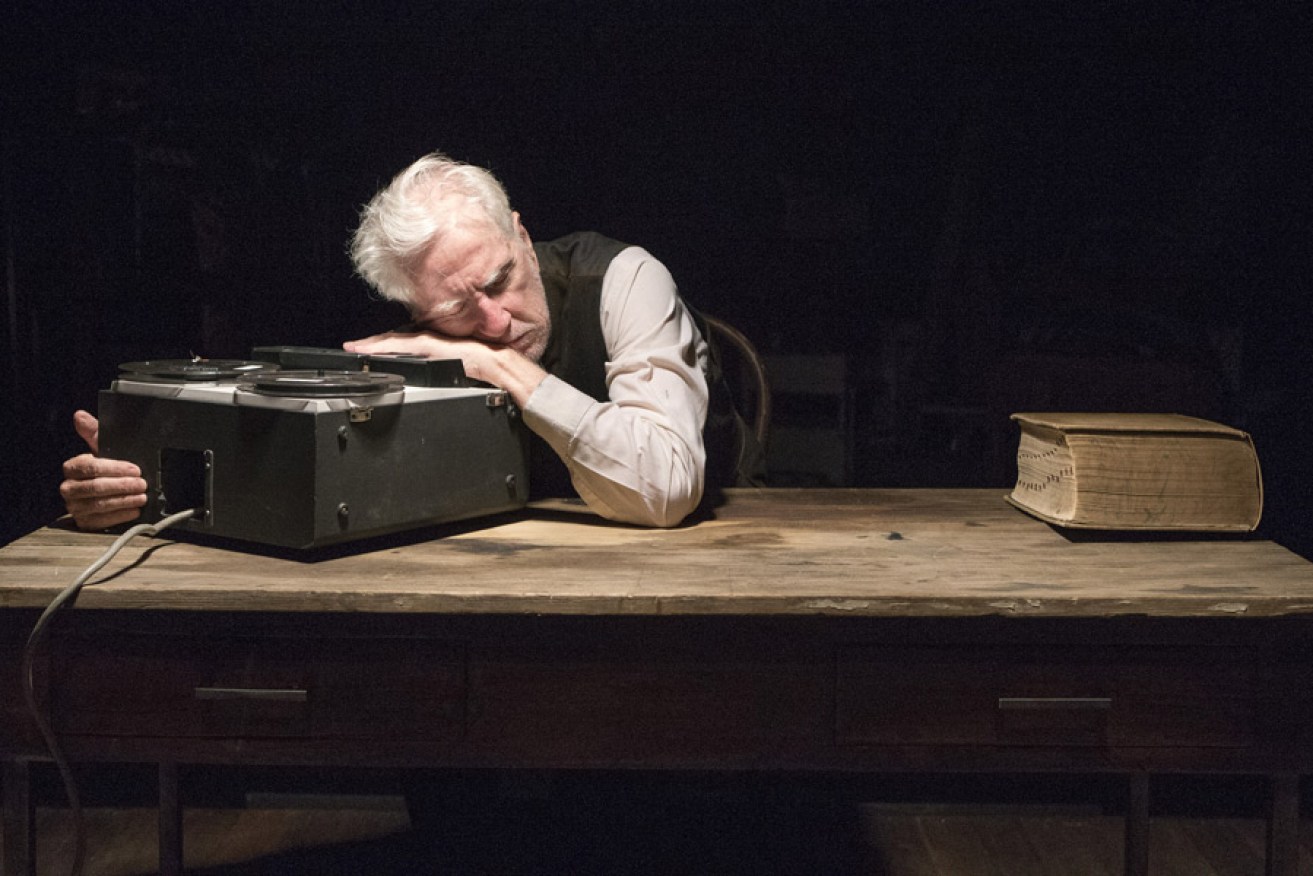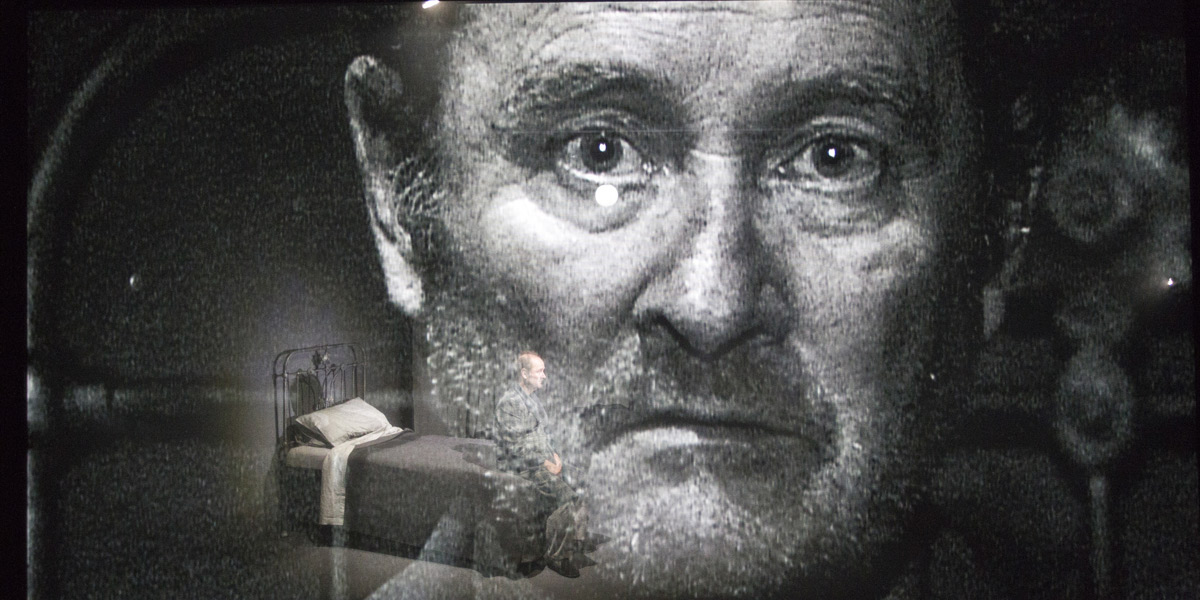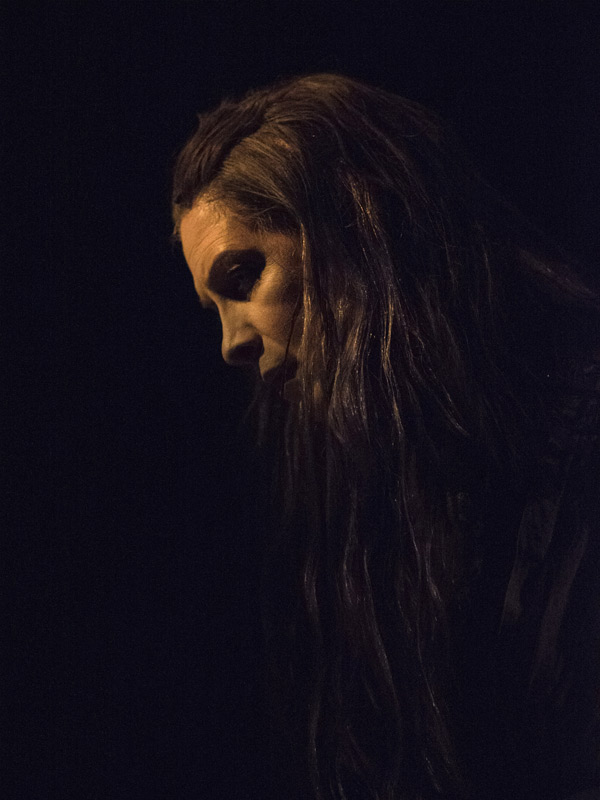Beckett Triptych a credit to State Theatre

Peter Carroll in Krapp's Last Tape. Photo: Shane Ried
This triptych of short pieces by Samuel Beckett, each a single-hander but all featuring a second voice, come from that era of existential angst post World War II when there was a public questioning of what life was about, what was real and what was not real.
Presented by the State Theatre Company of SA as part of the 2015 Adelaide Festival program, the pieces are a mirror to our own internals and all lead through psychological twists to an essential form of pathos.
They also cover three decades of Beckett’s work, from 1958 to 1975, and are grouped by theme and style.
The first of the pieces, Eh Joe, was actually written for television in 1965 (which in itself is enough to make us wonder about the progress of TV in 50 years). In this production directed by Corey McMahon and featuring actor Paul Blackwell, we hear the “endless restless stream of words” inside Joe’s head as he sits on a bed in his murky monochrome room that matches his own agonised interior.
Curtains cover windows and even doors; Joe locks himself in. His face is projected on a screen front-of-stage, in front of him, and a camera slow zooms close-ups of him as the piece progresses. The Voice in his head is creating a private hell of regret, evoking the pale eyes that haunt him, lovers lost, the last one gone now. All that is left is the Voice.
The torture does not abate with the second piece, Footfalls, directed by State Theatre artistic director Geordie Brookman. The lone actor (Pamela Rabe) paces slowly up and back, crossing the front of the stage. Lighting is low, with pale illumination catching her spectral gowns. We are close to obsessive madness here, as a mother figure is evoked, spoken to. Snatches of conversation are recalled from decades before and repeated and interpreted: perhaps invented – almost certainly invented.
As she walks, she “must hear the sound of the foot no matter how softly it falls” – it is as if she is trying to convince herself that even she is really there. The holding of darkness to counterpoint the sombre lighting at the end was bold and brilliant.
After interval, Krapp (actor Peter Carroll) sits and listens to tape recordings. He is at a table on a low dais in a large room surrounded by trolleys and pallets piled high with furniture junk. He peels a symbolic banana, avoiding slipping on the skin, and listens to tapes made on past birthdays.
The theme of age and regret is continued in Krapp’s Last Tape, directed by Nescha Jelk, but here it is lost opportunities that burn up Krapp. He laughs at his former smooth mellifluous voice; he turns serious, slumps in silence. “With all this darkness around me, I feel less alone,” he says.
These pieces come from an age that was still under the influence of Freud and Jung. The darkness inside us is reflected in the lighting juxtapositions in all three pieces, while sound is used differently each time.
The work of the three directors is often unique. All actors are brilliant, as are the Voices – the young Krapp is, at times, darkly hilarious. This is a rare show and a great credit to the company.
The State Theatre Company of South Australia is presenting The Beckett Triptych in the Scenic Workshop and Rehearsal Room at the Adelaide Festival Centre until March 15. Click here to read InDaily’s interview with artistic director Geordie Brookman about the production.






